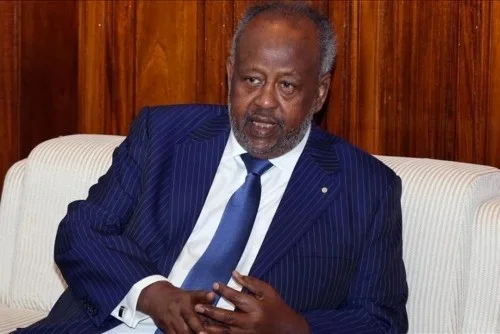A senior adviser to Djibouti President Ismail Omar Guelleh has resigned, raising alarms about the country’s democratic trajectory.
Alexis Mohamed, who has served as the president’s international spokesperson since 2015, announced his departure after years of frustration over political favoritism and weakened institutions.
Longtime Leadership Under Scrutiny
President Guelleh, in power since 1999, has reshaped Djibouti into a strategic hub for global shipping and foreign military bases, including those of the U.S. and China.
At 77, Guelleh has suggested he may pursue another term in 2026. Such a move would require constitutional changes to lift existing age restrictions.
Reasons Behind the Resignation
Explaining his decision, Mohamed cited:
- A steady decline in democratic principles
- Lack of transparency in economic and diplomatic agreements
- Weak institutional independence
- Increasing reliance on family networks in state governance
“I’ve reflected on this choice for two years,” Mohamed revealed, adding that he cannot support any constitutional amendment that would extend Guelleh’s rule.
He emphasized that presidential term limits remain vital for safeguarding democracy.
Political Context in Djibouti
Djibouti’s ruling coalition, the Union for the Presidential Majority, currently dominates the country’s legislature. Guelleh secured reelection in 2021 with more than 97% of the vote.
His political career stretches back decades, including over 20 years as chief of staff to Djibouti’s independence leader Hassan Gouled Aptidon before assuming the presidency.
Growing Calls for Reform
Mohamed’s resignation underscores mounting concerns about power consolidation within Djibouti’s leadership. As the nation approaches the 2026 elections, his demand for transparency and democratic renewal could intensify debate over the country’s future political direction.
MORE LINKS:






